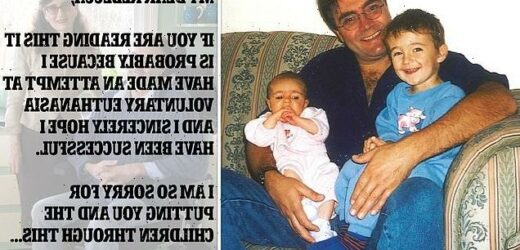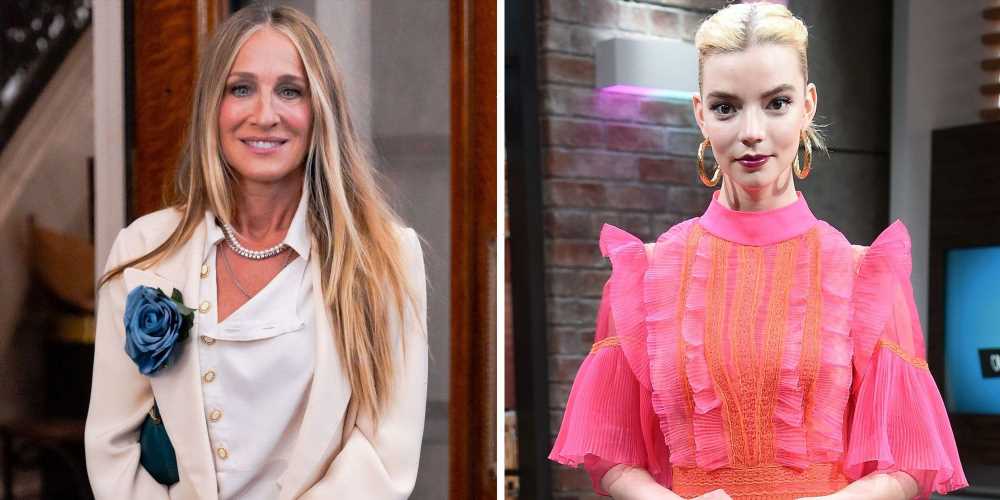The heartbreaking letter a terminally ill father left behind for his family after sending them on holiday so he could end his life – as his devastated son says he should NEVER have been forced to die alone
- NSW father suffering from crippling nerve disease sent his family on holiday
- Lawrie Daniel, who was confined to bed for 20 hours a day, then took his own life
- It it illegal for those suffering from a terminal illness to be helped to die in NSW
- Son Bertie said his father should have been allowed to die surrounded by family
- 21-year-old said assisted dying law would have given father ‘dignifying death’
- Opponents say assisted dying will see society ‘place a value on a life’
- For confidential crisis support, contact Lifeline on 13 11 14
A father suffering from an incurable nerve disease sent his family away on holiday and then took his own life, leaving behind a letter saying he would not have died in such a shocking fashion had assisted dying laws been in place.
Lawrie Daniel, 51, took his own life in 2016 after developing multiple sclerosis, a condition which left him confined to a bed for 20 hours a day and unable to use his arms or legs.
The father, from the Blue Mountains in NSW, arranged for his wife and two teenage children to holiday in Sydney before ended his life in his bedroom.
Bertie Daniel, now 21, said his father should have been able to die through euthanasia surrounded by his loved ones – rather than in a dark room by himself.
He is campaigning for assisted dying to be legalised in NSW, the only state in Australia where there is no such law in place.
The issue is the subject of an emotionally-charged debate. Advocates say assisted dying is about dignity in death, while opponents argue such laws place a value on what is a life worth living.
Lawrie Daniel, 51, sent his family on holiday before taking his own life after being diagnosed with the nerve disease multiple sclerosis. The father wanted to die via euthanasia but the practice is still illegal in NSW. He is pictured with his son Bertie (left) and daughter Darcie (right)
Mr Daniel, who now campaigns for assisted dying, told Daily Mail Australia: ‘If we had assisted dying it wouldn’t have been so sudden – we would have been able to say goodbye.
‘Instead, (my father) had to die alone without any of his loved ones by his side.’
Mr Daniel said his dad had no option but to send his family away so they wouldn’t be accused of being complicit in his death.
‘We went into the city and had a really nice time. We woke up the next morning and were driving back home and got a phone call from police,’ Mr Daniel said.
‘To find out he did it to himself was a major surprise – we didn’t have any kind of warning.’
The 51-year-old former carpenter left behind a final letter to his wife Rebecca, which apologised for the impact his suicide would have on her and their children.
‘My dear Rebecca, if you are reading this it is probably because I have made an attempt at voluntary euthanasia and I sincerely hope I have been successful,’ he wrote.
‘I am so sorry for putting you and the children through this, but it has been nine years since my first physical MS symptom in 2007 and you know what I have been living with all the time and what will happen in the next horrifying stages of this disease.
‘If we had a compassionate voluntary euthanasia process in this country, none of this would have had to happen in the way that it has.’
Lawrie Daniel in 2013, three years before his death. He is pictured centre with his son Bertie left and daughter Darcie right
FATHER’S LETTER TO HIS WIFE BEFORE TAKING HIS OWN LIFE
My dear Rebecca, if you are reading this it is probably because I have made an attempt at voluntary euthanasia and I sincerely hope I have been successful.
I am so sorry for putting you and the children through this, but it has been nine years since my first physical MS symptom in 2007 and you know what I have been living with all the time and what will happen in the next horrifying stages of this disease.
If we had a compassionate voluntary euthanasia process in this country, none of this would have had to happen in the way that it has.
I’m so sorry I had to do this, and that you are going to have to deal with the aftermath of me having to end my life and having to end it in this way.
I hope you can forgive me and that you and the children won’t see this as selfish, but as self-care and self-compassion in a country where I have no alternative but to turn to self-help.
I have had no practically useful medical care – they can’t even treat my pain and so the only bright spot in all these years has been your incredible dedication and compassionate understanding, every day, without fail, to try to help me in my efforts to stabilise or improve and to just make sure that all my needs were met anyway, with cheerfulness, patience and great love.
You and our children have been magnificent in the face of the many difficulties my illness imposed.
I love you, I love our children. I’m so sorry I have had to leave you all and end my life in this way, but I could see no other option available to me in the circumstances.
I ask for everyone’s compassionate understanding and I ask you all to please forgive me.
You and our children helped me every day during nearly every decade of my life with this illness, with infinite loving kindness. Thank you for everything.
Lawrie Daniel with his wife Rebecca. ‘If we had assisted dying it wouldn’t have been so sudden – we would have been able to say goodbye,’ Mr Daniel’s son Bertie, now 21, said
Assisted dying: For and against
Mr Daniel said his father’s incurable disease took away his job, driving licence and beloved hobby making models and left him in severe pain.
‘My dad was slowly losing function in his limbs and suffered from constant neuropathic pain,’ he said.
‘Touching things was agony and even when he kept his arms down by his side he was still in unending pain.’
The 21-year-old said his father had campaigned for assisted dying to be legalised in NSW in the years leading up to his death.
‘I want to keep carrying the torch from him and get the law changed,’ Mr Daniel said.
‘I’m furious that we had to go through this and that other people have had to go through this for decades.
‘All the other states have legalised it. I want NSW to realise they’re prolonging the suffering of the terminally ill and the suffering of everyone close to them.’
Mr Daniel has lodged a petition to the NSW Parliament calling for an assisted dying bill to be passed into law ‘without delay’.
Premier Dominic Perrottet last year split with many of his senior ministers and opposed such a bill.
Mr Perrottet warned it would ‘open a door that no-one else can close’ and would represent society ‘crossing a line’.
Bertie Daniel pictured left with his father Lawrie. The 51-year-old was a carpenter before his health deteriorated
Pictured: Lawrie Daniel. He left behind a final letter to his wife Rebecca, which apologised for the impact his suicide would have on her and their children
Mr Perrottet said it was not an abstract debate to him, recalling how he had recently sat with his dying grandmother in hospital.
‘I could tell she was in great pain and that she wanted it to be over,’ he said.
‘I got a sense, as much as anyone can have, why those in such pain would want to end it quickly.’
However, he said: ‘Once we accept the principle of this bill, we cross a line and nothing will be the same, as we will have started to define the value of a life.’
Queensland in September became the fifth state to legalise assisted dying, although access to the scheme will not be available until January 1, 2023.
That state’s bill allows those suffering a disease, illness or medical condition that is advanced, progressive and terminal to access to voluntary-assisted dying.
Their condition must be expected to cause death within a year, they must have decision-making capacity, and proceed without coercion.
The NSW assisted dying bill was debated by the state’s Upper House this week.
For confidential crisis support, contact Lifeline on 13 11 14.
Source: Read Full Article







